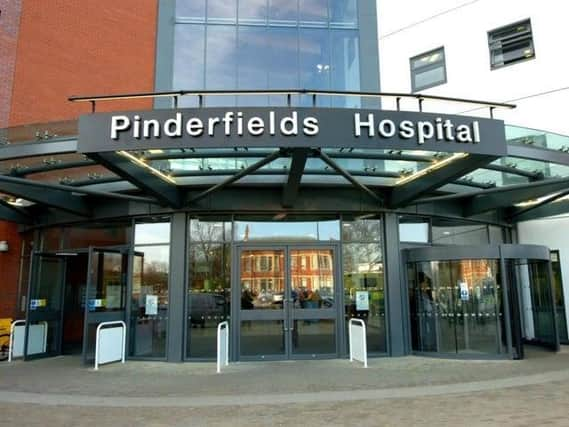Drop in A&E visits is putting lives at risk, charity warns


The pandemic has seen a dramatic fall in the number of patients going to emergency departments, official figures show, prompting growing concern among health chiefs.
In March last year 22,012 people attended A&E departments run by Mid Yorkshire Hospitals NHS Trust, which includes Pinderfields, Pontefract, and Dewsbury hospitals.
Advertisement
Hide AdAdvertisement
Hide AdThat figure dropped to 16,306 in March of this year, a 26 per cent decrease.
In a Downing Street press conference health secretary Matt Hancock expressed alarm at the decline in people going to A&Es.
He said: “If you are worried about chest pains, for instance, maybe you might be having a heart attack or a stroke, or you feel a lump and you are worried about cancer, or you are a parent concerned about your child, please come forward and seek help as you always would.”
NHS in England has begun a new public information campaign to persuade people to use the health service when they need it.
Advertisement
Hide AdAdvertisement
Hide AdSeeking medical help is one of the four reasons that people are allowed to leave home, in line with government guidance.
In England, attendances at A&Es fell by nearly a third in March, compared with March 2019. NHS England expects there to be one million fewer patients this April than last - a drop of about half.
Sonya Babu-Narayan, associate medical director at the British Heart Foundation, warned that delaying treatment in an emergency could leave people with far more serious health problems.
“Heart attacks and strokes are medical emergencies and treating them remains a top priority for the NHS,” she said.
Advertisement
Hide AdAdvertisement
Hide Ad“Research has led to several effective treatments for heart attacks, but if you delay, you are more likely to suffer serious heart damage and more likely to need intensive care and to spend longer in hospital.”
Dr Babu-Narayan added that delaying treatment for a stroke “could leave you with a disability that could have been avoided”.
“People should not let fear of the coronavirus, or of being a burden to a hospital, deter them calling 999 when they suffer heart attack or stroke symptoms.”